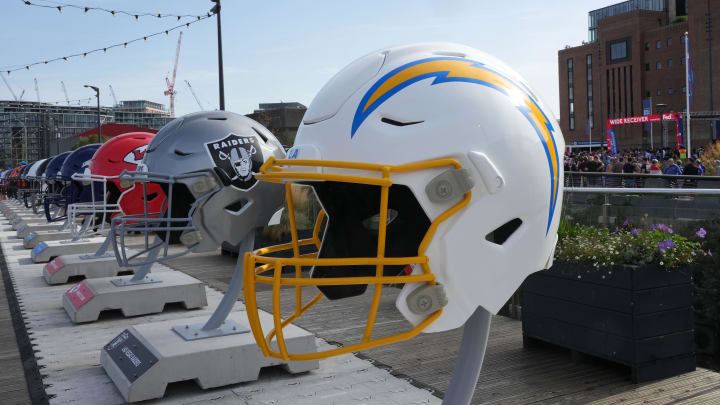Chargers News: Recounting Legendary Bolt's Decision to Boycott 1965 All-Star Game

To commemorate the Juneteenth holiday on Wednesday, Eric Smith of Chargers.com took a look back at the courageous moment former San Diego Chargers defensive end Earl Faison, a five-time AFL All-Star and five-time All-AFL team honor, opted to boycott the 1965 All-Star Game in New Orleans.
Upon landing in the Big Easy, however, the 6-foot-5, 270-pound vet was taken aback by the attitude of attendant fans.
"The moment he stepped off the airplane, he was subject to a racial slur in the New Orleans airport," New Orleans-based author Erin Sapp remarked. "So, as soon as you can be discriminated against and abused in a city, that was his experience."
Faison couldn't get a cab out of the airport, though all his white All-Star teammates did. He was also mistaken for his All-Star teammate Ernie Ladd, which resulted in further disrespect.
"At that point, Ernie was known as probably the biggest man in football. He was 6-foot-9 and at least 320 pounds," AFL historian Todd Tobias said. "The hotel worker said, 'Is that Ernie Ladd?' And the response he got from his coworker was, 'No, Ernie Ladd is a bigger [racial slur] than that.'
New Orleans at the time was hoping to lure the AFL into adding an expansion team there, and was hoping to prove its readiness with a positive run at the All-Star Game. A collective of players, including Dick Westmoreland, Ladd and Faison, approached a nightclub that was playing James Brown music, but was refused entry by the doorman.
"They said, 'What are you talking about? You're playing James Brown music, but you won't let Black people in?' And then the bouncer pulled a gun on them," Tobias said.
The group couldn't even hail a taxi to take them back to their hotel, invariably.
"They get directions and they start walking back to the hotel," Sapp said. "It was on that walk back to the Roosevelt Hotel that those three Chargers players decide that they're not staying. They weren't going to take this and they were not going to play."
Faison and Ladd led the rest of the league's Black players into deciding to boycott the All-Star Game if it would be played in New Orleans.
"It was a collective decision. And while the final vote was said to not be unanimous, they all decided to act together as a collective unit," Sapp revealed. "But it does seem like Earl was in the group that first said, 'We're out of here.' I do think he was a leader in that regard."
"Ultimately, the league backed them and it was moved to Houston and it was played the following week," Tobias said.
It was a big moment in the history of equity in the game. And it was inspired by the courage of a Chargers legend.
More Chargers: Ladd McConkey Signing Now Official
